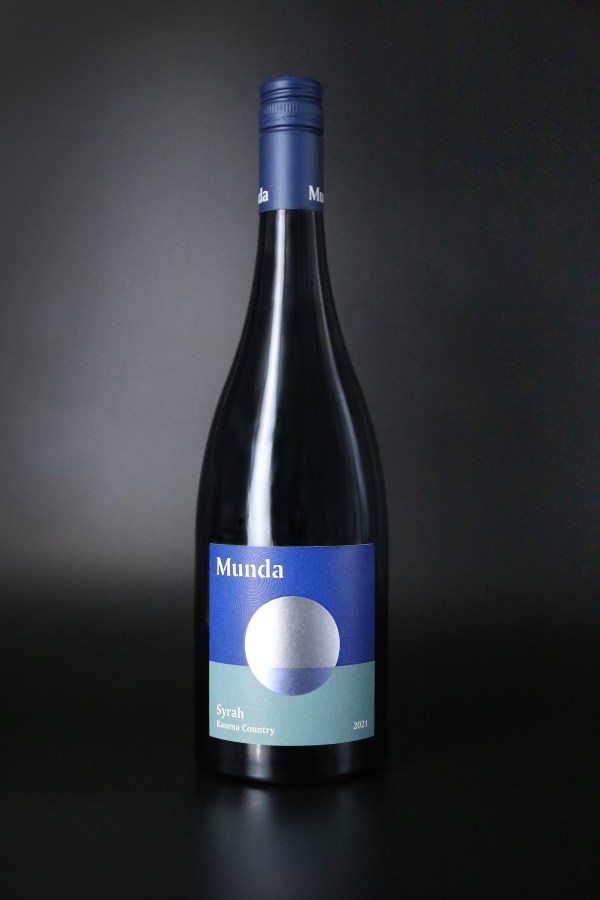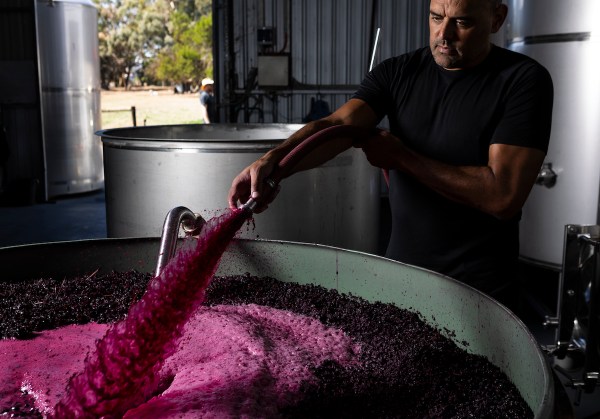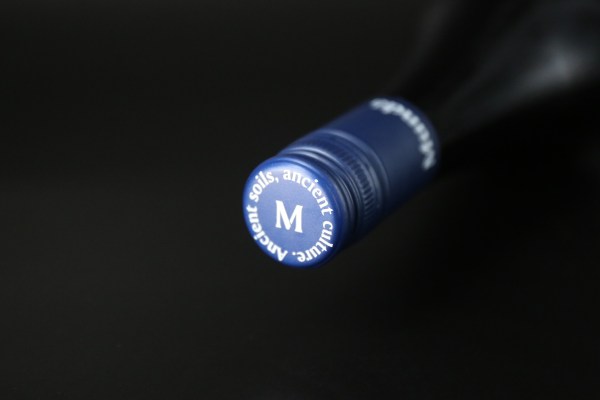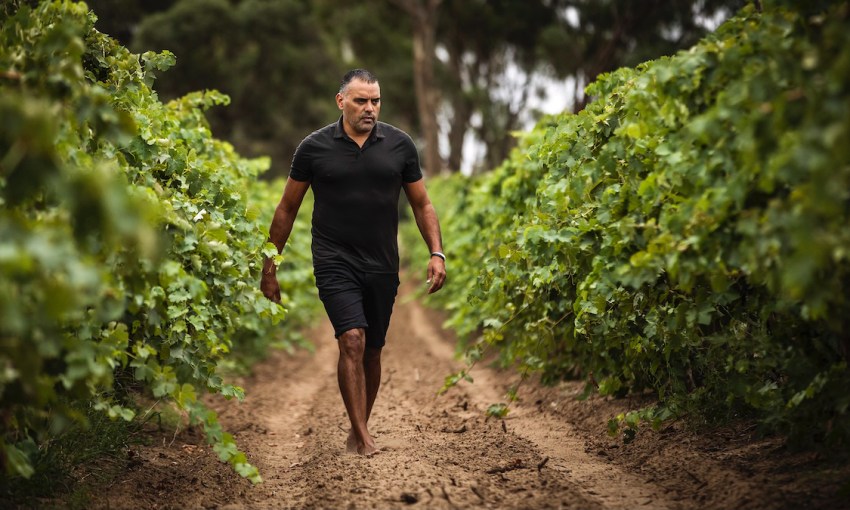Munda Wines is the new premium wine label of First Nations leader Paul Vandenbergh who wants to ignite discussion about Aboriginal culture and create career pathways for young Indigenous people in the wine industry.
Munda Wines brings Indigenous culture to the table
Pick up a bottle of just about any South Australian wine and on the back of the label you’re likely to read about multi-generational winemakers, European techniques and the French concept of terroir.
Yet, how many of those talk about the Indigenous connection to the land which has been occupied by First Nations people for tens of thousands of years before the first vines were planted?
This is one of the questions that led Paul Vandenbergh on a path to create a new wine label that makes a hero of munda – the Wirangu and Kokatha word for land – and celebrates Country before all else.
Munda has this month released its first wine: the Kaurna Country Blewitt Springs Syrah 2021 which has been produced in conjunction with Chalk Hill Wines.
For Paul, this modest release of 9000 bottles is the beginning of an important new Indigenous presence in the Australian wine industry.
A former professional basketball player who now works for the AFL developing pathways for young Indigenous people, Paul has created Munda Wines with co-founder Damien Smith, who is a wine industry veteran.
Together, they hope the new wines will start conversations about reconciliation, culture and history.
“If you think about the Barossa, the town names are words like Tanunda and Nuriootpa, yet not many people even know the real meaning of those words,” says Paul.
“McLaren Vale was Kaurna country before it was McLaren Vale and we want to start acknowledging traditional owners and the history of the land.”

Paul says the notion of munda pre-dates the French concept of terroir by thousands of years.
“Our wines and wine styles aim to reflect the attributes of the relevant Aboriginal countries of each vineyard,” says Paul.
Under the Munda brand, Paul and Damien source fruit from vineyards that fit their philosophy of caring for munda.
They then contract wineries to make the wines to their specific style and formula.
There will be staggered releases over the coming year and all Munda wines will be fruit-forward with minimal oak characteristics to showcase the produce and the land it comes from.
“There’s currently a movement around what reconciliation means for Australia and we feel that Munda Wines can continue that message for First Nations people,” says Paul.
“We would love to one day have a cellar door that people can physically visit and have these conversations regularly.
“For now, we just want to partner with good wine companies and traditional owner groups that want to tell their stories.
“We want to one day have an Indigenous senior winemaker leading Munda Wines and we’re currently talking with a university about scholarships in that space.”

Paul says the mindset in the industry is shifting, with companies starting to look at acknowledging traditional owners in appropriate ways.
“There are some significant wineries who are taking notice and we’re seeing that recognition coming from them now,” says Paul.
He applauds the “cutting edge” work of Daniel Motlop in creating Seven Seasons Green Ant Gin.
“Maybe the wine industry has tried before, but people have been nervous,” says Paul.
“Talking to the industry, their nervousness is around Aboriginal people and alcohol – nobody really wanted to touch it.
“The stigma that goes with alcohol and Aboriginal people is pretty negative and that’s been a question that’s come up quite a bit.
“We don’t feel like we need to answer it because, although I’m not saying we don’t have those issues in our communities, alcohol is a global issue.”
Paul has designed the label for the Syrah himself, with a circle that represents his own munda – Wirangu and Kokatha.
It will be mostly sold by the bottle, not the glass, so the label can encourage discussion among consumers.

“You could have splashed a massive art piece right through it, but that would take the focus away from Munda,” says Paul.
“Where I come from, the majority of our artwork takes a bird’s eye view, looking down on the country.
“The blue resonates with Damien and me because whilst we are talking about land and country, blue also represents wanna – the sea – and McLaren Vale is unique because the sea joins the land.
“You can interpret it any way you want – it looks like the Aboriginal flag or the sunset or the moon.”
The style of Munda wines aims to showcase the fruit, preferring minimal intervention in the winery, minimal oak, and bottling relatively early to reflect the brightness of the wines.
In addition to shining a spotlight on culture, the project strongly focuses on career pathways.
“My passion has always been working with young people, whether indigenous or not, with the idea that anything is possible,” says Paul.
“I come from Ceduna, I grew up in a remote community, and I was successful to be able to come to Adelaide, get a university degree and play professional basketball.
“So for me, I feel like there’s no gap between me and non-Aboriginal person. Now I’m on equal footing, how do I role model that?
“We can use different platforms such as the wine industry to filter down into our communities and families: ‘If Pauly can do it, anyone can’.”



